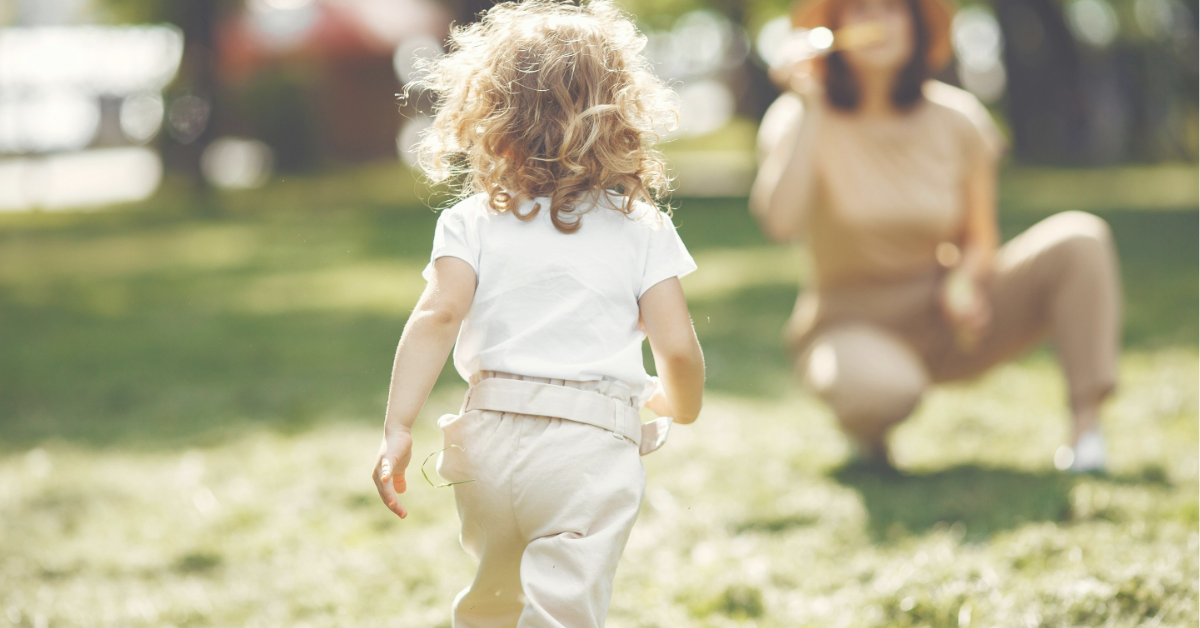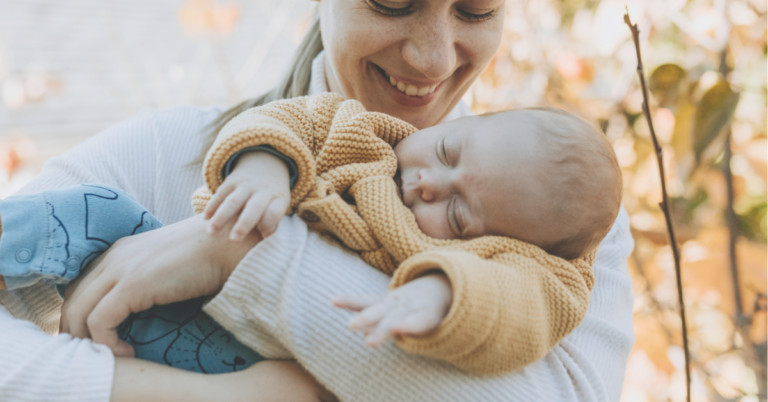Why Are We So Afraid of Over-Nurturing?
From the moment our babies enter the world, the pressure begins. “Don’t pick her up too much, you’ll spoil her.” “A little tough love will set her straight.” “She’s faking it.” These comments, often tossed out casually, reveal a deeper societal fear—that nurturing too much will make a child weak, that responding to their needs too often will somehow hold them back from independence.

But research, time and time again, tells us the opposite. A child who feels secure in their attachment is not more dependent but rather more confident, emotionally resilient, and independent in a healthy, balanced way. True independence doesn’t come from pushing a child away—it comes from knowing they always have a safe place to land.
A study published in the Journal of Epidemiology and Community Health found that infants who received high levels of maternal affection exhibited significantly lower levels of emotional distress in adulthood. Additionally, research on maternal sensitivity—how well a parent perceives and responds to their child’s needs—has shown that children with nurturing caregivers develop better social and cognitive skills, as well as greater emotional security in adulthood. The evidence is clear: We are not “coddling” our children when we comfort them—we are giving them the foundation to thrive.
The First Step to Healthy Independence
Independence and confidence grow from the same strong roots—nurtured by security and trust. The first step to raising an independent child is not forcing them to do things alone but rather building a secure attachment that allows them to trust, explore, and grow. Secure attachment is formed through consistent, loving responses to a child’s needs—holding them close when they cry, offering comfort, and providing a dependable presence. When children feel safe and valued, they develop the confidence to navigate the world with resilience and assurance, allowing them to trust, explore, and grow.
A child who knows they are safe is the one who ventures further, not out of fear, but out of confidence. They are not navigating the world in survival mode, shutting down or building walls. Instead, they step forward with the assurance that no matter what happens, they are not alone.
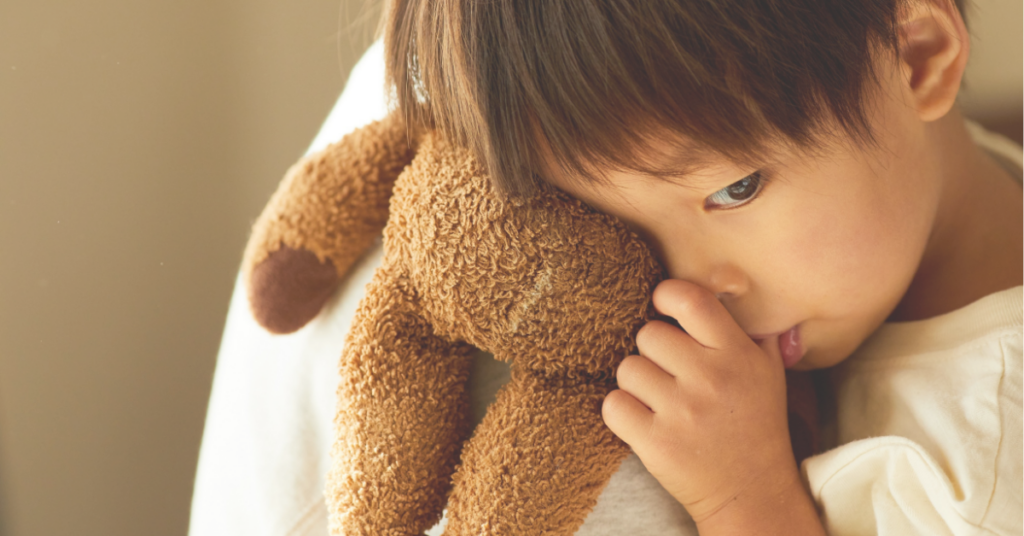
This means responding to their needs, not fearing that comfort will make them dependent. Don’t push away—pull your babies close. Cancel the outside noise of pressure. No one knows your baby’s needs—big or small—better than you. Be their safe place, so they always know they are never alone. No matter how small or how old they are, whatever is happening in their world, it matters. They matter.
The Push and Pull of Motherhood
As parents, our instinct is to protect. We never want to see our child hurt, struggle, or fail. But sometimes, in our efforts to shield them, we unintentionally hold them back. The truth is, allowing them to navigate small challenges—whether it’s risky play or struggling through a problem—lays the foundation for problem-solving, resilience, and confidence.
I was reminded of this truth one day at the playground. My daughter climbed up onto the play structure, times before normally hand in hand with mine. But this time was different—she let go, eager to try on her own. A bittersweet moment: pride, joy, a tinge of sadness, and the ever-present fear—what if she falls?
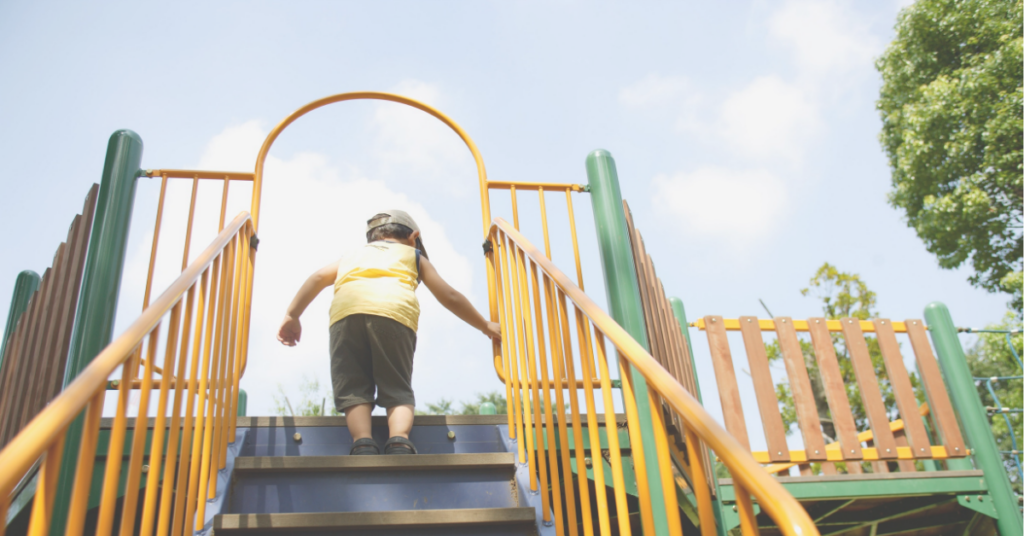
I hesitated, but I knew. She was ready. So I stood close, watching as she tested her balance and carefully pulled herself up. A huge grin spread across her face—she had done it! I hurried to the bottom of the slide, arms open, ready to catch her. This is how I want her to know and remember me, able to spread her wings, explore learn and growing with her mom just there, always ready to catch her safe in my arms.
Motherhood is full of these moments—the push and pull between holding on and letting go. Instead of fixing, we can stand close, offering encouragement, letting them know we’re there. Because independence isn’t about doing things alone—it’s about knowing they have a safe place to land when they need it.
Why Independence Matters (Even When It’s Messy)
It’s tempting to do things for our kids because it’s faster, neater, or just easier. Buttoning up their jacket, tying their shoes, the frustration of not understanding that new puzzle—it’s so easy to jump in and do it for them. I’ve caught myself a few times, making myself step back and assist with guidance rather than doing it for her. The reward? That beautiful grin of achievement when she finally completes the task at hand.
It may seem so small, but these are the foundations to fostering independence, teaching their beautiful souls resilience, problem-solving, and self-confidence—skills that will serve them well beyond childhood. And here’s the good news: fostering independence isn’t about stepping away; it’s about standing beside them, offering encouragement as they find their own way.
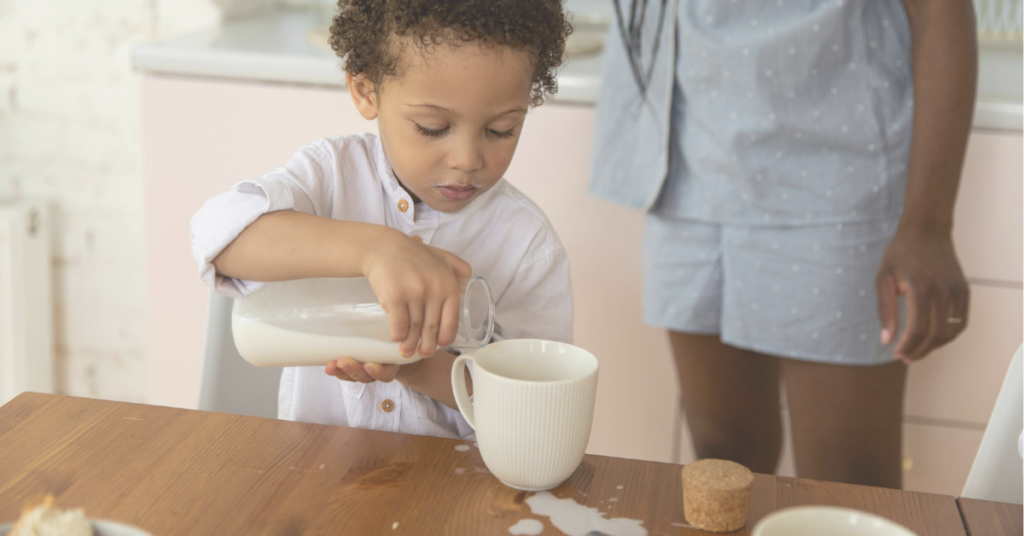
How to Foster Independence Without Sacrificing Connection
- Let Them Make (Safe) Choices
Giving kids a say in their daily routines helps them build decision-making skills. Instead of asking, “What do you want for breakfast?” (which can lead to overwhelm), try, “Would you like oatmeal or scrambled eggs?” This way, they’re practicing independence within a safe and structured environment.
💡 Related Read: The Power of Simple Choices in Child Development - Teach Life Skills in Small Steps
I used to think allowing my child to help in the kitchen would double my cleanup time (and honestly, sometimes it does). But when I involve her in small tasks—stirring pancake batter, washing fruit—she not only learns valuable skills but also feels like a valued part of our family.
Start small: letting them set the table, pour their own water, or dress themselves (even if that means a mismatched outfit). These tiny steps build confidence and a sense of contribution. - Embrace the Extra Time It Takes
Yes, it would be faster if you did it yourself. But growth happens in the moments when they struggle, problem-solve, and finally succeed. Whether it’s tying shoes or zipping up a jacket, the more we step back and let them try, the more capable they become.
Independence and Connection Can Coexist
We don’t have to choose between raising independent kids and maintaining a strong bond. In fact, the more confident and capable our children feel, the more secure they are in our love.
So, mamas, let’s celebrate those moments—whether it’s the first time they dress themselves, help with dinner, or insist on doing things their way. They’re not pushing us away; they’re growing, and that’s a beautiful thing.

📩 Join Our Community
Want more encouragement on mindful parenting and raising confident, connected kids?
